Gay blood donation: 'No evidence' to support outright ban
- Published
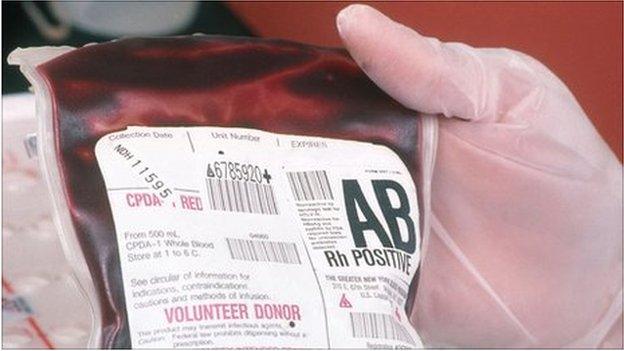
The BBC has discovered that the department of health has no medical evidence to support the ban
Northern Ireland's Department of Health does not have any medical evidence of its own to support a permanent ban on gay men donating blood, a BBC investigation has found.
Other parts of the UK have a one-year deferral period for men who have had sex with men and want to donate, but Northern Ireland has an outright ban.
A judge has ruled the health minister did not have the power to keep the ban.
The current health minister, Jim Wells, is appealing the judgment.
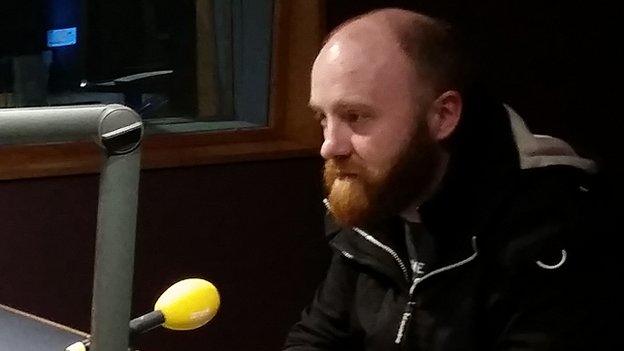
John O'Doherty was speaking on BBC NI's Good Morning Ulster
John O'Doherty from gay support group, the Rainbow project, said there was no medical evidence to justify the ban imposed by former health minister Edwin Poots, DUP.
He told BBC NI's Good Morning Ulster on Thursday: "It is a ridiculous situation.
"We supported a lifetime ban during the Aids crisis because it was in response to medical need.
"This is a decision that has to be made on a medical basis. We are continually hearing from the blood service that they need blood, yet we are blanket saying no to gay and bi-sexual men.
"At the same time, Northern Ireland is taking blood from Scotland where they have removed the ban on gay and bi-sexual men giving blood."
Mr O'Doherty said the equality legislation was "only as strong as those who implement it".
The bar on gay men donating blood was put in place across the UK during the Aids crisis of the 1980s, but was lifted in England, Scotland and Wales in November 2011.
New rules were introduced that allowed blood donations from men whose last sexual contact with another man was more than a year earlier, but Northern Ireland did not follow suit.
First Minister Peter Robinson MLA said it is the quality of blood that matters to those that are in need
A gay man, granted anonymity due to his perceived vulnerability, launched a judicial review challenge to the then health minister Edwin Poots' decision not to adopt the same policy on this side of the Irish Sea.
A judge ruled that Mr Poots' decision was "irrational" and "infected with apparent bias".
Mr Poots said he had kept the ban on the basis of ensuring public safety.
Under a freedom of information request, the BBC asked the Department of Health to release any medical evidence it held that supported the minister's decision to continue to enforce the lifetime ban.
The response stated that "this department does not hold any papers in relation to medical evidence to support maintaining the permanent blood donor deferral for men who have had sex with men donating blood".
"The department takes advice on blood safety matters from the Advisory Committee on the Safety of Blood, Tissues and Organs, external (SaBTO).

Former health minister Edwin Poots has consistently rejected claims that his position may have been influenced by his religious views
"SaBTO was content that based on this and other evidence, a change to 12 month deferral would maintain the safety of blood transfusions, and recommended that communications about policy change should emphasise the importance of compliance.
"SaBTO found that the evidence no longer supported a lifetime ban."
The SaBTO evidence held by the department says that with enhanced compliance the risk of HIV being released into the blood supply "could be reduced to as low as 0.161 per million donations".
Appeal
Mr Poots said in 2012 that he had seen two pieces of evidence that had helped him make his decision to maintain the ban.
The BBC understands that these pieces of evidence were a letter and a European Council report.
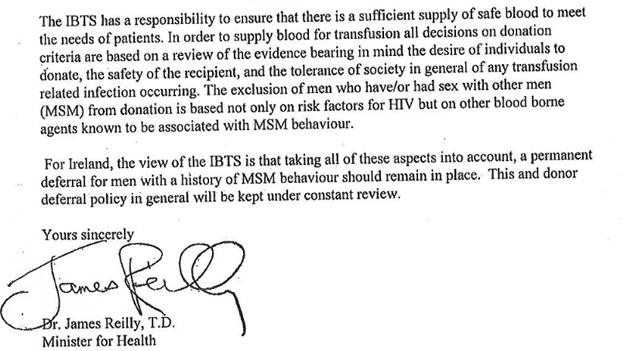
The BBC has obtained a letter from the then Irish minister for health James Reilly to Edwin Poots
The BBC has now obtained a copy of the letter from the former Irish Health Minister James Reilly, external and the European Council report, external and has published them online.
In a subsequent letter to the Irish Blood Transfusion Service, in July 2014, Mr Reilly asked for a review of the position in the Republic of Ireland.
He said he was "concerned that the ban on donation of blood by gay men may no longer be justified on scientific grounds".
In January 2012, the director general of health improvement and protection in the Department of Health in Whitehall replied to a letter from the Stormont health department on the issue.
Prof David Harper wrote that it was "SaBTO's clear view that the available evidence showed that lifetime deferral for blood donations from men who have had sex with men was no longer appropriate."
He added: "Our decision on such blood donations is based on these findings, and, we were also minded that for our policy on permanent deferral to be lawful and defensible, it would need to be proportionate and based on reasonable grounds."
The Northern Ireland Department of Health has issued a statement saying: "As the appeal is ongoing it would not be appropriate to comment on matters that are before the courts."
In a recent ministerial question, Mr Wells revealed that £40,000 had so far been spent on legal fees challenging the ruling.
It has also been revealed in court that despite the unidentified applicant's sexual orientation, he has become a born-again Christian who now disapproves of homosexual practices.
The department also confirmed it had not made any attempt to prevent blood from the rest of the UK coming into Northern Ireland.
Mr Poots and Mr Wells are members of the DUP, which said that it was not appropriate to comment while the case was ongoing.
Sinn Féin MLA Maeve McLaughlin, chair of Stormont's health committee, has called for the ban to be lifted immediately.
"There is a very clear equality issue at the heart of all of this and there is the issue of public funding," she said.
"It has been clearly documented and stated that there is no medical evidence to support this outright ban. It should be lifted. This has gone through a judicial court process where it has been deemed irrational.
"Lift this ban and halt all court proceedings."
- Published19 January 2015

- Published8 January 2015

- Published5 September 2014

- Published7 April 2014
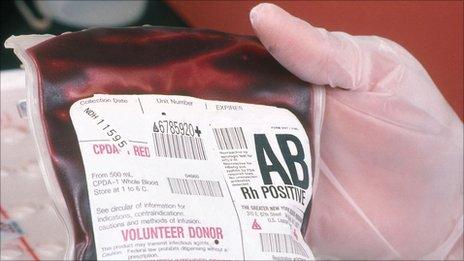
- Published11 October 2013

- Published17 June 2012
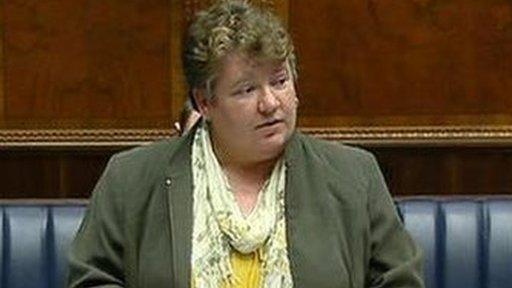
- Published17 June 2012
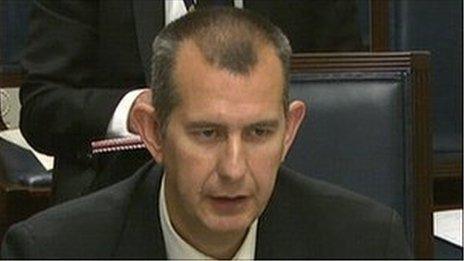
- Published22 September 2011
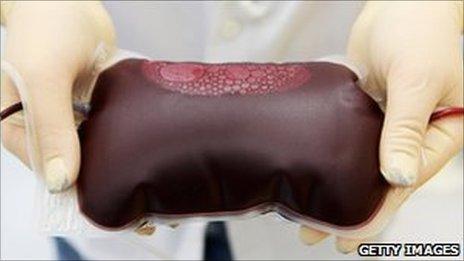
- Published8 September 2011
